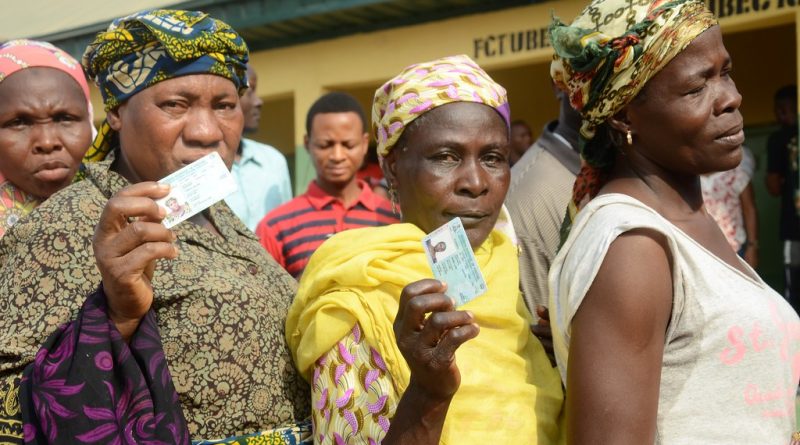Nigeria Holds General Elections in Africa’s Largest Democracy
Anna Thibodeau
Layout Editor
Nigeria held one of its closest presidential elections in history on February 25. As current president Muhammadu Buhari reached his two-term limit, three main candidates vied for the spot. Bola Tinubu of the All Progressive Party (APC), former vice president Atika Abubaker of the People’s Democratic Party (PDP), and Peter Obi of the Labour party were the top three candidates, according to Al Jazeera.
Nigerian voters faced several challenges while attempting to vote in this election. Citizens cast their votes on paper ballots, but their identities and votes were then to be confirmed and counted on the brand new Bimodal Voter Accreditation Machines, says the Wall Street Journal. However, many polling centers had to delay opening because they had trouble getting the machines to work, according to Al Jazeera. Some polling centers also reported equipment failure and machines being stolen. After voting ended, many polling centers lost internet connection and were unable to upload results on time. According to the Wall Street Journal, only one-third of results sheets were uploaded onto the website by Monday morning. Reuters reports all three parties have complained of counting irregularities and some cases of violence and voter intimidation, although voting went smoothly in most areas of the country. Acts of voter suppression were also reported in Lagos, Borno, and Anambra, says Al Jazeera.
Despite these irregularities and delays Bola Tinubu was announced as the winner on February 28. According to BBC News, Tinubu received around 37 percent of votes, but with a voter turnout of only 27 percent, Tinubu’s 8.8 million votes equals less than 10 percent of Nigeria’s 93 million registered voters. Many voters never got to cast their ballots because of the extreme delays and various issues, making this one of the lowest voter turnouts Nigeria has seen since 1999.
Tinubu sticks out as a candidate for a few reasons. Firstly, Nigeria is split religiously with a majority Muslim north and majority Christian south. While not required, it is customary that presidential candidates choose a running mate of the other religion, explains the Washington Post. However, Muslim Tinubu chose a Muslim running mate. Tinubu is also not new to politics. The former governor of Lagos is known as a “political godfather” for helping others get into office, says BBC News. According to the Wall Street Journal, he even boasted about helping President Buhari during his campaign but has since distanced himself. According to CNN, Tinubu has also been fighting allegations of graft and confusion on the campaign trail. During his campaign he abstained from many presidential debates and delegated questions to members of his team, CNN says.
BBC reports that in the wake of Tinubu’s win, members of the Labour party are looking to annul his victory. The winning party has asked opposition to accept defeat, reports the Associated Press. Labour party supporters have reported feeling frustrated at a “fraudulent” election, and these feelings are not unique. According to a recent Gallup poll, 94 percent of Nigerians view their government as corrupt.
According to NPR, two-thirds of Nigeria’s population is in poverty and nearly 50 percent of all young people are unemployed. The Nigerian currency’s value is at a 40-year low and as the economic downturn continues, cases of kidnapping for ransom keep going up. CNN claims that Buhari leaves a “patchy legacy” for the next president to handle. Marked by economic decline and insecurity, Nigeria has faced two recessions, Islamist insurgencies, a kidnapping epidemic, herder-farmer conflicts, cash shortages, fuel and power issues, corruption, and poverty all during Buhari’s eight-year term, reports Al Jazeera.
Gallup reports that 74 percent of Nigerians cannot afford food and 48 percent cannot afford shelter. The Washington Post reports that 52 percent of young Nigerians want to emigrate. According to The Conversation, Nigeria’s next president will have to find solutions for fractured government policies, collapsing national security, a battered economy, endemic public corruption, and a restive university sector. Now in the wake of a dramatic election and accusations of voter irregularities, Tinubu will be sworn into office to face these challenges in May 2023.
Image courtesy of Common Wealth Secretariat, Flickr

